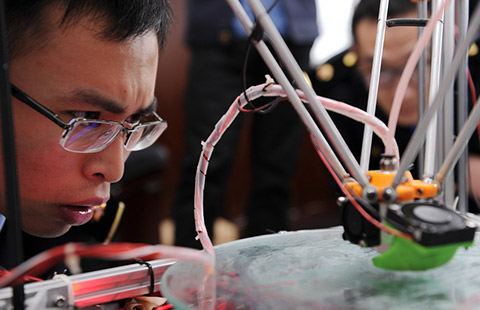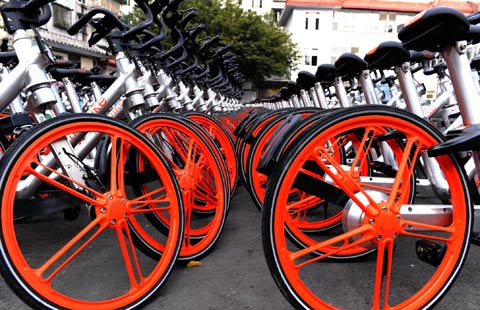Officials mull nuclear power for ships on polar missions
China's polar expedition ships may use nuclear propulsion in the future, experts said, after one of the country's leading shipbuilders announced it has begun developing key technologies for nuclear-powered vessels.
"Compared with ships that use conventional propulsion, nuclear-powered ships can travel farther and are more reliable, factors that make the ships a reasonable choice for polar expeditionary missions," Du Wenlong, a senior researcher at the People's Liberation Army's Academy of Military Science, told China Daily on Wednesday.
His remarks came a day after China Shipbuilding Industry Corp, one of the two dominant shipbuilders in China, said in an online news release that one of its research institutions has received State approval and funding to formally begin research on core technologies and safety for nuclear-powered ships.
The company did not disclose further details about the project.
The news attracted close attention from fans of the Chinese military, who forwarded the news more than 800 times on Sina Weibo, China's most popular micro-blogging service.
Many military followers link the announcement to widespread speculation that China may develop its own nuclear-powered aircraft carriers.
"I think the research will definitely pave the way for our nuclear-powered aircraft carrier," said a micro-blogger who uses the name Shangoufu.
Another micro-blogger, Yingziyinji, asked, "Does it mean that we will have a Chinese version of the (US') nuclear-powered Nimitz-class aircraft carrier in the near future?"
Du said he considers it possible that the Chinese navy's next carrier will be equipped with nuclear propulsion.
"China already has the technology and industrial capability to develop and build a nuclear-powered aircraft carrier," he said. "We already have nuclear-powered submarines, which require more sophisticated technologies and manufacturing capabilities, so developing a nuclear-powered carrier will not be difficult."
Du's view was echoed by Li Jie, a professor at the PLA Naval Military Studies Research Institute, who said it is "more likely" that China will install nuclear reactors on its next aircraft carrier.
"We have command of most of the essential technologies of building a nuclear-powered carrier," he said, adding that some technical problems still need to be resolved.
The US navy has all but one of the world's nuclear-powered aircraft carriers, with 10 in service after the USS Enterprise was deactivated in December. The only operating aircraft carrier outside the US is France's Charles de Gaulle, also the first French nuclear-powered surface vessel.
In addition to an aircraft carrier, China's submarine fleet would also benefit from new-generation naval nuclear propulsion, Du said.
"The new-generation nuclear reactor will enable our submarines to operate with lower noise. It will be smaller and have more power compared with its predecessors and boast a higher safety performance."
However, in the short term, merchant ships will not use nuclear propulsion, he added.
"Merchant ships often make more stops during their voyage than military ones, which means it is very convenient for them to reload supplies. Another concern is safety - conventional power is deemed more safe than nuclear propulsion."
Four nuclear-powered merchant ships had been developed by the US, Japan and Germany, but were all decommissioned.
"In the long run, all the strong naval powers and countries with big shipbuilding industries must step in to develop nuclear-powered ships," Li said.























